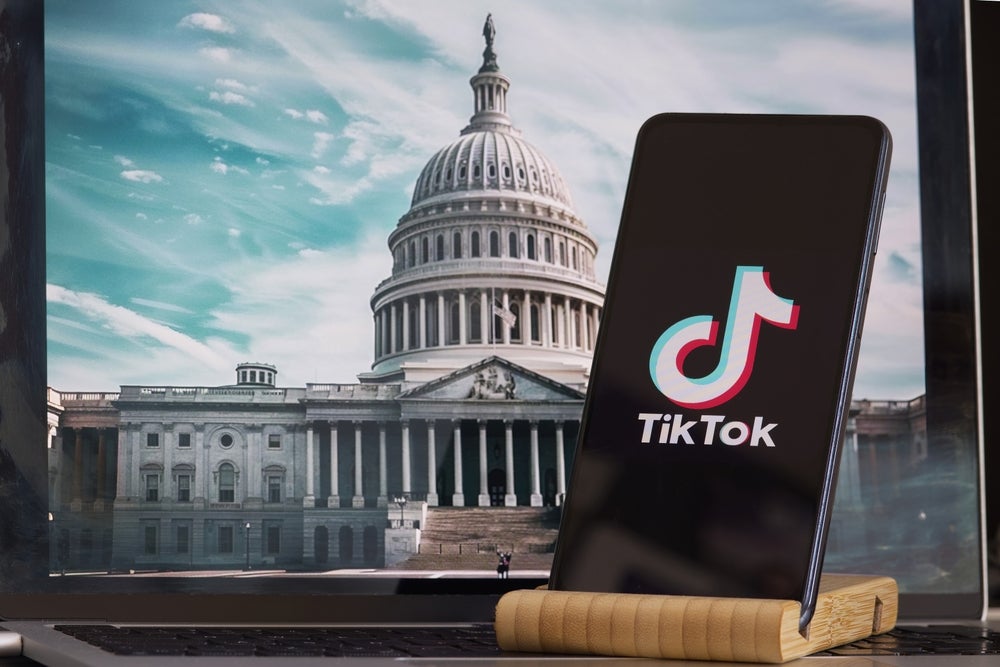
OnlyFans has scrapped its controversial ban on pornographic content. However, the events of the past week still serve as stark reminders of the power payment processing providers and banks hold over internet companies.
These events have also damaged the London-based company’s relationship with the majority of its users who create explicit content. Despite the subscription platform’s U-turn, OnlyFans creators won’t forget how quickly the company can change its policy.
They have reason to be sceptical. In the week since OnlyFans first announced the ban, creators have been rushing to save their content, finding new ways to make a living and been worrying about their future. Many creatives publicly said that the threat of being booted off the platform left them feeling “betrayed”, “suicidal” and “abandoned”.
To add insult to injury, many creators had been told by OnlyFans representatives that the platform would make no change to the policy mere hours before the ban was announced, as screenshots shared on social media channels reveal.
The internet-based business blamed the ban on pressure from financial service providers. On Tuesday, OnlyFans CEO and founder Tim Stokely, who runs the business with his family, repeated the claim in an interview in the Financial Times.
“The change in policy, we had no choice – the short answer is banks,” Stokely said.
How well do you really know your competitors?
Access the most comprehensive Company Profiles on the market, powered by GlobalData. Save hours of research. Gain competitive edge.

Thank you!
Your download email will arrive shortly
Not ready to buy yet? Download a free sample
We are confident about the unique quality of our Company Profiles. However, we want you to make the most beneficial decision for your business, so we offer a free sample that you can download by submitting the below form
By GlobalDataHe singled out Bank of New York Mellon, Metro Bank and JPMorgan Chase as being particularly aggressive in their stance against OnlyFans and creators of adult content. Stokely said that Bank of New York Mellon had “flagged and rejected” every wire connected to the company, “making it difficult to pay our creators”.
Similarly, the CEO noted that Metro Bank had closed OnlyFans’ corporate account in 2019 and that “JPMorgan Chase is particularly aggressive in closing accounts of sex workers or… any business that supports sex workers.”
OnlyFans has also listed Visa, MasterCard, Stripe and Securion Pay as payment processing partners. Of those, Mastercard is the only one to have distanced itself from OnlyFans’ ban.
“We only found out about this through the media coverage on Thursday. It’s a decision they came to themselves,” Seth Eisen, senior vice president of communications at Mastercard, tells Verdict.
Visa, Stripe and Securion Pay did not return Verdict‘s requests for comment before the publication of this story.
Rumours have suggested that OnlyFans announced the ban to make it easier to sell shares as majority owner Leonid Radvinsky, the Ukrainian-American entrepreneur behind porn site MyFreeCams, is looking to offload part of his stake. Stokely rejected these speculations in the Financial Times interview.
“We didn’t make this policy change to make it easier to find investors,’‘ said Stokely, arguing his family and Radvinsky would not bring in owners that were not comfortable with adult performers.
However, on Wednesday it seems as if OnlyFans had managed to overcome the challenges posed by financial services firms. In the afternoon, it tweeted that the decision to prevent adult-content creatives from using the platform had been suspended.
“Thank you to everyone for making your voices heard,” OnlyFans said. “We have secured assurances necessary to support our diverse creator community and have suspended the planned October 1 policy change. OnlyFans stands for inclusion and we will continue to provide a home for all creators.”
Thank you to everyone for making your voices heard.
We have secured assurances necessary to support our diverse creator community and have suspended the planned October 1 policy change.
OnlyFans stands for inclusion and we will continue to provide a home for all creators.
— OnlyFans (@OnlyFans) August 25, 2021
Behind the scenes, sources told the Financial Times reporters that part of the policy reversal was due to creators and the public transferring their outcry to the banks, calling and demanding a response. The financial service companies consequently capitulated under the pressure, paving the way for adult performers to remain on OnlyFans – at least for now.
However, creatives weren’t placated by the news. They were still angry about their livelihoods being put in jeopardy in the first place.
As an OnlyFans performer using the tag Savannah Solo put it: “Something about the special way you gaslight and manipulate us is starting to make me feel like this account is run by one of my ex-boyfriends.”
Many also noted that the statement failed to recognise sex workers by name and that the ban had only been suspended, not cancelled. They reminded each other that OnlyFans has already demonstrated an ability to kick them out on very short notice.
Eva Lovia, real name Candice Clarke, is a mainstream pornstar who is currently earning about 90% of her income via OnlyFans. Following the lifting of the ban, she advises her fellow creatives to not put all their eggs in the OnlyFans basket.
“I think it’s important to be organised and ready for change,” she tells Verdict. “I think being on too many platforms selling the same type of content is a great way to dilute your brand and confuse your fans. I think the trick is to diversify your brand and offer different types of content on different platforms like Twitch, YouTube and podcasting.”
OnlyFans’ ban, albeit overturned for now, has created a stir in the business community. It’s been the topic of intense debate on investor forums and startups have taken it as an opportunity to fill the vacuum OnlyFans would leave behind. Rival creator platforms and cryptocurrency evangelists have spent the past week pitching their solutions to whoever’s willing to listen. But more on this later.
For now, let’s focus on how OnlyFans’ suspended ban is a reminder of the power payment processing providers have to dictate what content websites are allowed to host and not.
Payment providers’ power
Financial services companies have form when it comes to manhandling platforms. Over the years, they have forced several sites to abandon explicit content in favour for more commercially palatable content.
“Payment processing has long provided a convenient choke-point for censorship,” Evan Greer, director at digital rights group Fight for the Future, said in a tweet.
At first glance, this may seem odd given how closely intertwined money and sex are. From the cost of dating and the power structures of the patriarchy to fashion and “the world’s oldest profession”, sex and money are intimately linked. The sexual wellness market alone is expected to be worth $125.1bn by 2026.
So it may be surprising to hear that the people who have literally made money their business don’t want anything to do with sex, at least not professionally.
This reluctance was prevalent when OnlyFans announced that all explicit content would be banned on the platform from October.
“Once again we’re seeing sex workers bear the brunt of unfair policy change and the morality police,” Emma Brown, founder of sexual wellbeing brand Knude Society, tells Verdict.
But why are banks, payment processing firms and other financial services so concerned about raunchier content?
“Credit card companies and financial institutions consider adult entertainment to be a high-risk sector, due to the disproportionately large number of disputed transactions compared to other industries that support card-not-present transactions,” Scarlett Woodford, analyst at Juniper Research, tells Verdict.
“A disputed transaction occurs when a customer queries the validity of a transaction completed through a debit or credit card, which can result in elevated charges for the financial institution.”
This is one reason why any company even mildly associated with sex will inevitably run into trouble when it comes to financial services. In the past, payment firms have refused to work with everyone from condom manufacturers to online sex toy shops. Similarly, sextech startups have struggled to raise money because of investors being reluctant to be seen putting money into high-risk companies in the gambling, cannabis or sex industries.
“Traditional banks and payment processing companies are hesitant to be linked to so-called vice money, and give these industries a wide berth to avoid potential future scandals,” Lil Read, analyst at GlobalData, tells Verdict.
The fear of scandals is certainly a contributing factor to payment firms’ reluctance of being associated with the adult entertainment industry.
Other reasons include fears of falling foul of regulations such as an controversial anti-trafficking bill package that include the Stop Enabling Sex Traffickers Act and the Allow States and Victims to Fight Online Sex Trafficking Act. The package, colloquially known as SESTA-FOSTA, was signed into law in 2018 by Donald Trump.
The enforcement of SESTA-FOSTA has made companies even more hesitant about being associated with explicit content. Advertisement website Craigslist, for instance, pulled its Personal ads section in response to the law, fearing its association with sex work would risk it falling foul of the legislation.
Sex workers have opposed SESTA-FOSTA, saying its failure to distinguish between consensual and non-consensual sex work has put the people in the industry even more at risk. They argue that pushing sex workers into the shadows would make this extremely marginalised group more vulnerable to predators, thus creating more victims, not fewer.
Another reason for payment companies and banks to be hesitant about the adult industry is because of the political pressure from conservative lobbying groups.
The National Center on Sexual Exploitation (NCOSE), which has its roots in the evangelical movement, was for instance tellingly quick to celebrate OnlyFan’s porn ban as a win for its campaigning efforts. It was equally quick to denounce the policy reversal on Wednesday.
“OnlyFans has chosen to continue its exploitation, despite knowing that it will face increasing criminal scrutiny over reports of filmed child sexual abuse, sex trafficking, and other non-consensually recorded sex acts being sold on its website,” says Haley McNamara, vice president of NCOSE.
When not straight-out forcing companies to ban smut, payment firms have taken steps to censor the content. Payment processing company CCbill, which is popular in the adult industry, has provided guidelines about the kind of content sites can allow to enjoy its services. Usually, the language is still so vague that creatives in the adult industry take additional steps not to lose out on the service, discouraging content that, whilst perfectly legal, could still risk falling foul of those guidelines.
OnlyFans not alone in the pornocalypse
Given the pressure payment processing providers can apply against internet companies, it’s hardly surprising that OnlyFans’ is not the first company to face the payment provider pornocalypse.
Credit card companies, for instance, cut off Backpage, an online classified ad business popular with sex workers, in 2015, according to Quartz. The site was then shut down by US authorities in 2018.
History seemingly repeated itself in December 2020 when Mastercard and Visa blocked paying with their cards on Pornhub and other Mindgeek-owned websites following reports that these sites were hosting videos depicting the abuse of children and revenge porn. PayPal had already severed its ties with Mindgeek at that point.
Today, users can only pay for premium access on Pornhub using direct bank account transfers or with cryptocurrencies. Unsurprisingly, cryptocurrency enthusiasts have been some of the loudest voices in the week since OnlyFans announced its ban.
Patreon, a creator subscription platform similar to OnlyFans, presents another case of history repeating itself. In 2018, creators of explicit content who’d used the site found that their accounts were suddenly being suspended, cutting them off from their livelihoods. In a statement to Vice that seem almost verbatim copied by OnlyFans last week, Patreon said it had “been ramping up the proactive review of content on Patreon due to requirements from our payment partners.”
Social media site Tumblr also banned explicit content on its platform in 2018. However, unlike OnlyFans and Patreon’s bans, payment processing firms don’t seem to be have been the key reason why Tumblr banned adult content. Instead, the decision seems to be linked to Apple kicking Tumblr off the App Store after child porn was found on the site.
Whatever the reason, severing its ties to these content creators has reduced Tumblr to a virtual ghost town. It reportedly lost 30% of its user traffic between instigating its stricter content policy in December 2018 and March 2019. The ban has seemingly also hurt Tumblr in other ways. When Verizon Media bought Tumblr in 2016 it paid $482m. Fast-forward to 2019 when Verizon Media sold Tumblr to Automattic, the owner of WordPress, for just $3m.
OnlyFans, of course, faces several of the same challenges these other platforms faced.
OnlyFans creators
OnlyFans has benefited from Covid-19. During the pandemic, the platform offered many content creators, especially within the adult entertainment industry, a lifeline when they couldn’t get work in other ways.
As a result, OnlyFans handled over $2bn in sales in 2020 and by charging a 20% fee to all content creators this generated over $400m in revenue.
For many, OnlyFans gave them more control of their income, even if they had already been established for a long time in the mainstream adult industry. Performers like Lacey London, who prefers to be referred to by her industry soubriquet, is one of the ones who enjoyed this freedom.
“Not only was I in charge of it all, but I was able to create what I wanted to,” London tells Verdict. “I was able to put the brand I wanted to put out there for myself versus having to put my brand in the hands of another company and having them shoot my content and to do whatever they come up with.”
OnlyFans arguably also gave performers more control, enabling them to pick and choose their partners or even if they wanted a partners in their videos.
“All of these things gave us independence and freedom,” London says.
The sentiment is echoed by Lovia. “It was incredible,” she says. “I can understand why so many people signed up. I signed up and immediately started making unbelievable money.”
But then came the ban announcement last week.
For Brown, this seemed hypocritical given payment processors and banks are happy to work with businesses causing “irrevocable climate change and damage to our planet.”
“Banks should not be the arbiters of moral decisions,” she adds. “This is an arbitrary line created by businesses that should not be dictating societal boundaries, only this time the morality line is policing people and their own bodies.”
But in fact the banks may simply have been reacting to media coverage, probably including a much publicised investigation by BBC News that revealed glaring shortcomings in OnlyFans’ ability to tackle child porn.
To the Financial Times, Stokely complained that OnlyFans had been unfairly targeted by media reports into “incidents of illegal content” that failed to mention how porn-free social media platforms grappled with similar issues.
OnlyFans has also touted its age verification and monitoring software together with human monitoring of both creators and their fans as a way to reduce the risk of illegal content being spread on the platform. These include taking a selfie and a picture of an ID.
“It was harder for me to verify who I was on OnlyFans than it was to get my mortgage,” Lovia says, adding that creators had to fill in and submit a lot of paperwork about themselves and any partner that may participate in creating content.
Still, the reports around OnlyFans’ platform being used to put children in harms way is something OnlyFans must keep working on as the regulatory scrutiny around internet companies is intensifying.
“Reports of children on the site – as content consumers, creators, and featuring in content produced by others – are worrying,” Read says. “Coupled with the ever-evolving regulatory landscape, including the UK Online Harms Bill, all platforms must work hard to protect users on their site, a problem faced even by tech giants such as YouTube and Facebook.”
Surge of crypto
With OnlyFans doing an 180 on its ban thanks to a deal with its partners, creatives are seemingly able to use traditional payment systems. However, some suggests the platform could’ve missed a trick by not considering cryptocurrencies like bitcoin and ethereum as an alternative.
“OnlyFans may have missed a huge opportunity by not incorporating a cryptocurrency payment system as a workaround to the challenges posed by traditional payment processors – an opportunity which competitor platforms will likely look to capitalise on,” Read says.
While OnlyFans has backtracked on its ban, these companies believe the events of the last week will accelerate the adoption of decentralised digital currencies, both in the adult industry and elsewhere.
“It’s a black swan event that will allow this adoption to happen. Adult has always led the way in technology,” Jeff Dillion, chief business development officer at Nafty, tells Verdict.
Nafty is combining its digital token with a content subscription service akin to that offered by OnlyFans where users can pay either with the Nafty token or, at a higher cost, with credit cards. London is one former OnlyFans creative who has already made the switch.
And Nafty is not alone. Other content subscription platforms are also trying to capitalise on the postponed OnlyFans ban. One of them is Mystarr run by rapper Tyga. He had reportedly made over $8m on his OnlyFans account before publicly announcing its deletion.
“Just deleted my OnlyFans, starting my own platform @myystar8 more futuristic, better quality & only 10% fee. Creators will also be able to make content of their choice!” he said in an Instagram post announcing the new platform.
While it’s unclear how these platforms will be affected by OnlyFans reversing its ban, it’s clear that the industry is busy developing alternatives that would skirt the strict rules of traditional financial services companies.






